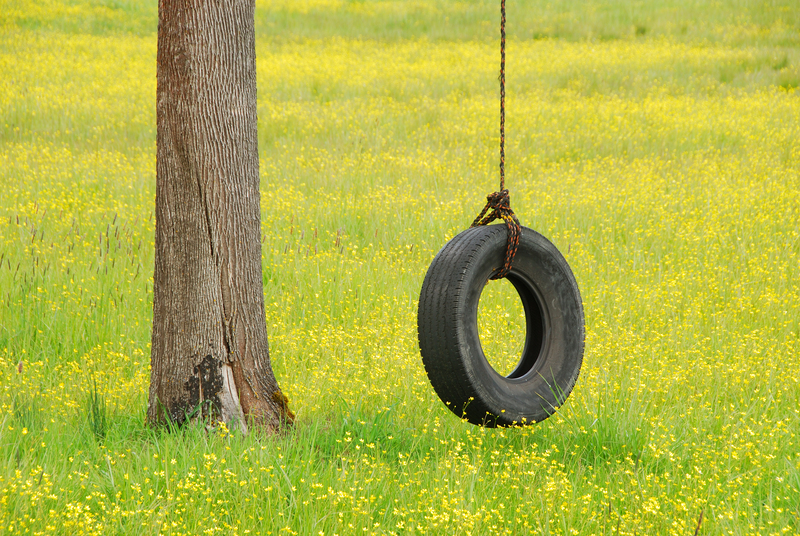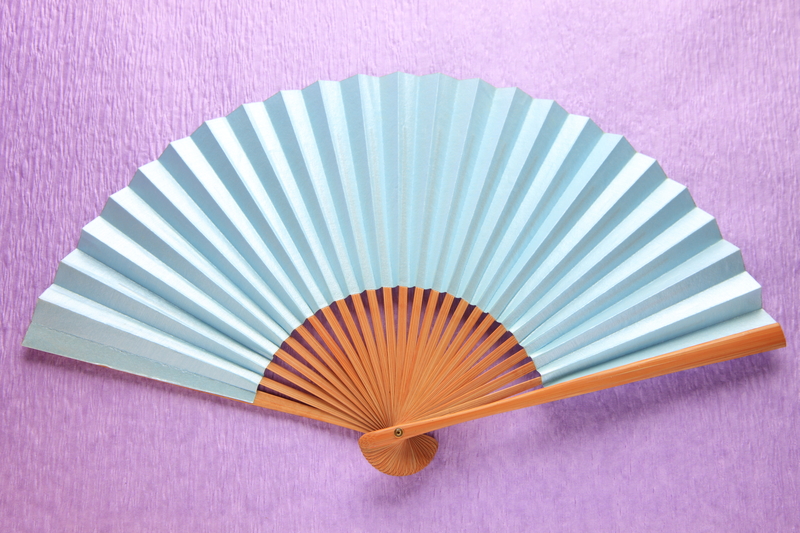Say Goodbye to Chaos: Stress Relief through De-cluttering
Are you feeling overwhelmed by the mess in your home, office, or digital space? If so, you're not alone. Many people struggle with clutter, often unaware that it does more than just take up physical space--it can cause significant mental and emotional distress. In this comprehensive guide, we'll explore stress relief through de-cluttering, helping you uncover practical strategies, science-backed benefits, and sustainable methods to bring order and tranquility to your life. Let's say goodbye to chaos for good!

Understanding the Link Between Clutter and Stress
The Psychological Impact of Clutter
Clutter doesn't just impact physical spaces--it has a profound effect on our minds. Research from Princeton University Neuroscience Institute found that overwhelming visual stimuli, like clutter, impedes our ability to focus and process information. Cluttered environments can leave us feeling anxious, stressed, and even powerless.
- Increased Anxiety: Cluttered spaces can elevate cortisol levels, the body's main stress hormone.
- Reduced Productivity: Excessive items create distractions, making task completion more challenging.
- Impacted Relationships: Living among chaos can lead to conflicts among family or roommates.
- Difficulty Unwinding: A messy environment makes relaxation harder, hindering your stress management.
Why Eliminating Clutter Brings Relief
Restoring order through de-cluttering replenishes your mental energy, gives you a sense of control, and boosts your confidence--all crucial for dealing with daily stress. As you clear away the unnecessary, your mind follows suit, opening up to calm and clarity.
Essential Benefits of De-cluttering for Stress Relief
Stress relief through de-cluttering delivers a host of mental and physical health advantages. Here's how letting go of chaos can promote overall well-being:
- Improved Mood: Clean, organized spaces are shown to enhance happiness and foster a sense of peace.
- Enhanced Sleep Quality: Studies show tidier bedrooms lead to deeper, more restful sleep.
- Increased Focus and Productivity: You can prioritize important tasks when distractions are minimized.
- Double-Duty Detox: Not only do you remove physical mess, but you also flush out negative emotions stored in your belongings.
- Renewed Motivation: Tackling clutter inspires other healthy habits--like exercising or eating better!
The Science: Why De-cluttering Reduces Stress
A UCLA study found that women living in cluttered homes had higher levels of the stress hormone cortisol. Meanwhile, families who spent time organizing their homes reported better well-being, stronger emotional bonds, and a renewed sense of harmony.
Common Causes of Clutter and Chaos
Before embracing stress relief through de-cluttering, it's crucial to identify what's causing your chaos. Some common sources include:
- Emotional Attachment: Items with sentimental value are hard to let go, leading to unnecessary accumulation.
- Lack of Storage Systems: When every item lacks a home, clutter tends to pile up quickly.
- Poor Habits: Procrastinating chores, not returning things to their right place, and impulse buying.
- Overwhelm: The task seems too daunting, so it's put off indefinitely.
- Busy Lifestyles: A hectic schedule makes it difficult to regularly tidy up and maintain order.
How to Start De-cluttering for Maximum Stress Relief
Getting Motivated: Setting Your Intentions
Understand why you want to de-clutter. Is it for peace of mind, increased productivity, or to create a welcoming space for guests? Write down your reasons and keep them visible as reminders when your motivation wanes.
Step-by-Step De-cluttering Strategy
Breaking the process down into manageable steps prevents overwhelm and increases your chance of success:
- Plan Your Attack: Choose a small, specific area to start (like a drawer or desktop).
- Sort Items: Categorize into keep, donate, recycle, or discard. Be realistic and honest.
- Organize What Stays: Assign every remaining item a designated place. Use containers and labels for easy access.
- Remove Distractions: Immediately take out the items you no longer need, so they don't find their way back in.
- Maintain Regularly: Dedicate 5-10 minutes daily to tidy up and keep chaos at bay.
Room-by-Room De-cluttering Tips
For comprehensive stress relief from de-cluttering, tackle your home or office one space at a time. Here's how:
The Bedroom: Your Sanctuary
- Clear the nightstand of unnecessary knick-knacks.
- Rotate seasonal clothing to free closet space.
- Use under-bed storage for items you seldom need.
- Swap mismatched bedding for harmonious, calming sets.
The Kitchen: Heart of the Home
- Purge expired foods and duplicate utensils.
- Designate "zones" for prepping, cooking, and storage.
- Use clear containers to easily view pantry items.
- Store frequently used gadgets within arm's reach; store specialty tools elsewhere.
The Workspace: Boosting Productivity
- Remove paper piles with a digital filing system.
- Keep only daily essentials on your desk.
- Bundle and hide cords for a streamlined look.
- Hang an inspiration board to keep motivation visible, not cluttered.
Digital De-cluttering
- Unsubscribe from newsletters and delete old emails.
- Organize files into folders and regularly back up important documents.
- Clear duplicate photos and unused apps on your phone.
Decluttering Techniques for Every Personality
The KonMari Method
This method focuses on keeping only those items that spark joy. Hold each item and ask yourself if it brings happiness. If not, thank the object and let it go. This intentional approach is great for those who struggle with letting go.
The Four-Box Method
Label boxes as "Keep", "Donate", "Throw Away", and "Relocate". Every item you touch goes into one of the four boxes, making decisions effortless even in large spaces.
Minimalism
Adopting a minimalist mindset centers around living with less and focusing on what truly matters. It's a continual practice, not just a one-time purge, and can be profoundly stress relieving.
One In, One Out Rule
Whenever you acquire a new item, commit to removing an old one. This ongoing strategy is a simple way to prevent clutter from building up again.
Overcoming Emotional Barriers to De-cluttering
Letting go can be tough--guilt, nostalgia, and fear of needing an item in the future all play a role. Here's how you can overcome the emotional obstacles to stress relief through decluttering:
- Start Small: Begin with items that hold little emotional value to build momentum.
- Seek Support: Enlist a friend, family member, or even a professional organizer who can offer objectivity.
- Reframe the Process: View parting with objects as creating space for new experiences rather than losing something.
- Preserve Memories Digitally: Photograph sentimental items before letting them go.
- Practice Gratitude: Reflect on the positive impact de-cluttering will have on your life and stress levels.
Tips for Maintaining a Clutter-Free, Calm Environment
- Schedule Routine Mini-De-clutters: Mark your calendar for 10-minute tidy-ups each week.
- Create "Drop Zones": Designate a space for keys, mail, and bags to prevent them from sprawling everywhere.
- Review Your Belongings Seasonally: Assess clothing, gadgets, and decor at the start of each season.
- Implement the "Five-Minute Rule": If it takes less than five minutes to put something away, do it immediately.
- Establish Household Guidelines: Get everyone on board--clear expectations lead to lasting results.
When to Seek Professional Help
Sometimes, clutter is symptomatic of deeper challenges like depression, anxiety, or hoarding disorder. If de-cluttering feels unmanageable or starts affecting your health and relationships, consider reaching out to a mental health professional or a certified organizer. They offer compassionate, practical strategies tailored to your unique needs, ensuring both your space and your well-being are restored.

Decluttering Success Stories: Real-Life Inspiration
Nothing's more motivating than seeing how de-cluttering reduces stress in real-life situations. Here are a couple of inspiring examples:
- Lisa, a Busy Mom: After dedicating weekends to de-cluttering, Lisa noticed less bickering at home and more quality family time. "We now find things without searching, and our home is so much more peaceful," she shares.
- James, a Remote Worker: By clearing his work area and organizing digital files, James overcame procrastination, improved his focus, and started ending his days less drained.
Conclusion: Embrace Peace and Well-Being with De-cluttering
Your environment profoundly shapes your mind and emotions. By embracing stress relief through de-cluttering, you'll foster a calm, revitalized world inside and out. Remember, de-cluttering isn't about perfection--it's about progress, awareness, and reclaiming your life from chaos.
Ready to start your journey? Small steps today can bring big tranquility tomorrow. Say goodbye to chaos--and hello to a serene, focused, and joyful life!
Quick Takeaways for Stress-Free De-cluttering
- Clutter directly increases stress and anxiety; reducing it can spark immediate relief.
- Break down the process to one room or area at a time for sustainable results.
- Adopt personalized strategies, such as minimalism or the KonMari method, to find what works best for you.
- Address emotional barriers and seek professional help if needed.
- Regular maintenance keeps chaos at bay and your stress levels low.
Feeling inspired? Share your de-cluttering successes and tips with us in the comments, and don't forget to bookmark this guide for your next stress-busting tidy-up!